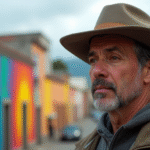Announcement of Enhanced Measures to Safeguard Chihuahua’s Cattle Industry
Maru Campos, the governor of Chihuahua, announced a series of reinforced measures to protect the state’s cattle industry from the Gusano Barrenador del Ganado (Cattle-Killing Worm) following the closure of borders due to a detected case in southern Mexico. The aim is to maintain Chihuahua’s status as a pest-free region and ensure the safety of its cattle exports to the United States.
Strengthening Existing Measures
Campos highlighted that her government will bolster the existing sanitary barriers, cattle surveillance during transit, and implement controls demanded by the United States to ensure the cleanliness and health of the animals.
- Reinforcement of existing sanitary barriers
- Enhanced cattle surveillance during transit
- Implementation of US-required controls for animal health and cleanliness
Additional Protective Actions
To further fortify the strategy, the following actions will be taken:
- Increased security personnel at inspection checkpoints
- Immersion baths and ivermectin application for cattle
- Initiation of fly trapping in the southern region and preconditioning barns
Collaborative Efforts and Investments
Mauro Parada, the Secretary of Rural Development, mentioned that thousands of producers have been trained, and field surveillance has been strengthened with 30 inspection checkpoints along with enhanced border security in the southern part of Chihuahua. Furthermore, certified veterinarians and specialized personnel have been deployed, along with an investment of over 200 million pesos in agro-livestock sanitation.
Key Questions and Answers
- What is the issue being addressed? The Gusano Barrenador del Ganado (Cattle-Killing Worm) has been detected in southern Mexico, prompting border closures and the need for enhanced protection measures in Chihuahua.
- Who announced these measures? Maru Campos, the governor of Chihuahua, announced the reinforced measures to safeguard the state’s cattle industry.
- What specific actions will be taken? These include reinforcing existing sanitary barriers, enhancing cattle surveillance during transit, implementing US-required controls, increasing security personnel at inspection checkpoints, administering immersion baths and ivermectin, and initiating fly trapping in affected regions.
- What collaborative efforts are being made? Thousands of producers have been trained, and field surveillance has been strengthened with inspection checkpoints. Certified veterinarians and specialized personnel have been deployed, along with significant investments in agro-livestock sanitation.






